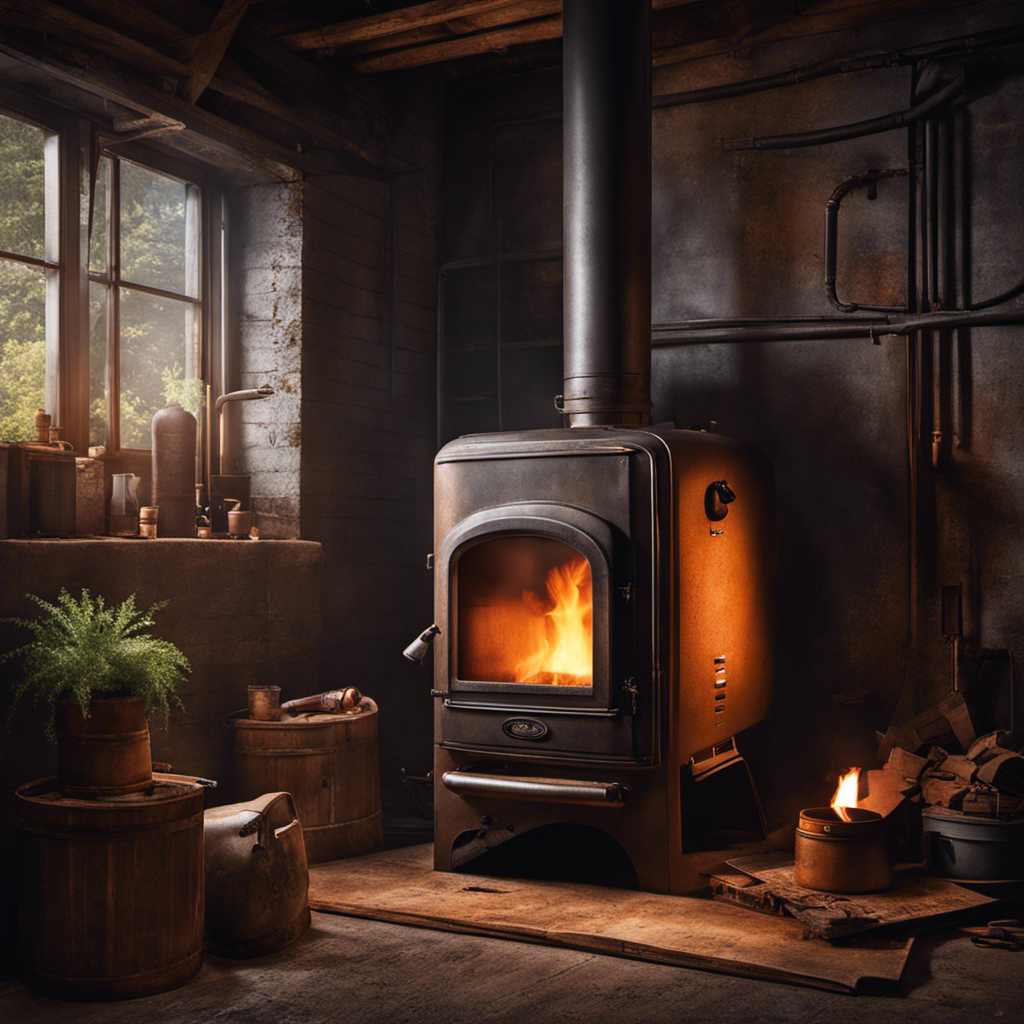In this article, we will explore the question that many homeowners often ponder: should I replace my furnace before it dies?
Making an informed decision regarding this matter requires careful consideration of various factors, including energy efficiency, cost savings, comfort, and the age and condition of your current furnace.
By delving into these aspects, we aim to assist our audience in navigating this crucial decision-making process, ultimately serving their needs and ensuring long-term satisfaction with their home heating system.
Key Takeaways
- Analyzing furnace energy efficiency leads to cost savings
- Upgrading to energy-efficient furnace provides greater savings and environmental benefits
- Investing in new furnace ensures comfort and financial stability
- New furnace reduces need for constant repairs and lowers expenses
Energy Efficiency and Cost Savings
Analyzing the energy efficiency of your furnace can lead to significant cost savings in the long run. By ensuring that your furnace operates at maximum efficiency, you can lower your utility bills and reduce your environmental impact.
A well-maintained furnace not only saves you money, but it also helps to preserve the environment by reducing energy consumption and greenhouse gas emissions. Regular maintenance, such as cleaning or replacing air filters, can improve efficiency and ensure that your furnace operates smoothly.
Additionally, upgrading to a newer, more energy-efficient furnace can provide even greater savings and environmental benefits. Investing in energy-efficient technology not only benefits your wallet but also demonstrates a commitment to serving others and protecting the environment.
Increased Comfort and Performance
The increased comfort and performance of a new furnace can greatly enhance the overall heating experience in your home. When you replace your old furnace with a newer model, you can expect improved air quality and reduced maintenance requirements.
A new furnace comes equipped with advanced filtration systems that can effectively remove dust, allergens, and other pollutants from the air, resulting in cleaner and healthier indoor air. This is especially beneficial for individuals with allergies or respiratory issues.
Additionally, newer furnaces are designed to be more efficient and reliable, reducing the need for frequent repairs and maintenance.
Avoiding Emergency Situations and Inconvenience
Replacing your furnace before it completely fails can prevent unexpected breakdowns and the inconvenience of being without heat in the middle of winter. By proactively replacing your furnace, you can avoid emergency situations and the stress that comes with it. Not only does it save you from the hassle of finding a technician during peak season, but it also saves you money in the long run.
Emergency repairs can be costly, especially if they happen during the coldest months when demand is high. Additionally, having a reliable furnace gives you peace of mind, knowing that you won’t have to endure the discomfort of a cold home or worry about potential health risks. Investing in a new furnace ensures both your comfort and your financial stability.
The Age and Condition of Your Current Furnace
Considering the age and condition of your current furnace is essential in determining its reliability and potential need for replacement. If your furnace is older than 15 years, it may be more prone to breakdowns and inefficiencies. In this case, it might be wise to consider a replacement rather than investing in costly repairs.
However, even if your furnace is younger, its condition plays a crucial role. A professional inspection can help evaluate the overall health of your system, identifying any underlying issues that may affect its performance and lifespan. They can also provide guidance on whether repair or replacement is the best course of action.
Long-Term Investment and Home Value
Additionally, periodically assessing the long-term investment and home value implications of replacing your furnace can help you make an informed decision.
When considering whether to replace your furnace, it is essential to consider the long-term maintenance costs and the potential impact on your home’s value. Older furnaces may require frequent repairs and maintenance, which can become costly over time. By investing in a new furnace, you can reduce the need for constant repairs and lower long-term maintenance expenses.
Moreover, upgrading to a more energy-efficient furnace can have a positive environmental impact by reducing your carbon footprint and energy consumption. This can also increase the value of your home, as energy-efficient features are highly desirable to potential buyers.
Therefore, considering the long-term investment and home value implications of replacing your furnace is crucial for making a well-informed decision.
Frequently Asked Questions
Will Replacing My Furnace Before It Dies Affect My Home Insurance Coverage?
Replacing your furnace before it dies may not directly affect your home insurance coverage. However, it is advisable to consult with your insurance provider to ensure that your policy covers furnace replacement and any potential changes in coverage.
How Long Does the Installation Process Usually Take When Replacing a Furnace?
The installation time for replacing a furnace can vary depending on factors such as the complexity of the system and any additional work required. It is important to compare costs and consider the impact on your home’s comfort and energy efficiency.
Can I Expect Any Tax Credits or Rebates if I Choose to Replace My Furnace Before It Dies?
Tax credits and rebates are available for replacing furnaces before they die. By upgrading to a more energy-efficient model, homeowners can enjoy cost savings on utility bills, while also reducing their environmental impact. These long-term benefits outweigh the initial investment.
What Are the Potential Drawbacks or Risks of Replacing My Furnace Before It Dies?
When considering the potential consequences and financial implications of replacing a furnace before it dies, it is important to evaluate the upfront costs, potential disruptions to daily life, and potential inefficiencies of an older system.
Are There Any Specific Maintenance Requirements or Costs Associated With a New Furnace That I Should Be Aware Of?
When considering a new furnace, it is important to be aware of the maintenance requirements and associated costs. Regular maintenance, such as filter replacement and professional servicing, will ensure optimal performance and longevity of your new furnace.


